
Titan will be presenting its brand new Fenrir Evo HSF at Computex in just a few weeks, but as it's an update to our favourite air cooler, we couldn't wait that long to take a look, so we took a trip to Titan's offices here in Taiwan.
With a new coat of anodizing, the Fenrir has gone from white to red to black and gold now, but the core heatsink underneath remains the same. As Titan put it, why change what works?
[break]
The Evo upgrade comes from the fan, which has double the blade count to push more air at slower speeds. Titan claims the performance is identical to the previous models but the noise level has been dropped considerably, as has the full-speed RPM.
Now manufactured by Titan itself, the fan is considerably heavier with stronger plastic blades compared to the old one.
Titan will launch the fan by itself in a retail package, so if you haven't already upgraded your current Fenrir, you can simply buy the new fan to Evo-ise it.
The Titan Fenrir Evo will ship for the same competitive price as the current Fenrir, as it will replace the old model. We asked Titan how it could achieve such a good price considering its competitors were often asking for over £50. Titan explained they only have to source the raw materials (not pre-manufactured parts) as it manufactures everything itself. This lowers the costs.
On the subject of anodizing: Titan was keen to point out that heavily anodised aluminium drops the cooling performance of a heatsink and using an external company to anodise cooling parts often results in a variable thickness of the aluminium-oxide layer which in turn affects performance.
Titan stated that it's very specific not to let its anodising process result in a thick coating on the fins, which would damage performance. Honestly, it's not something we considered before, but clearly Titan has picked up on it and it's good to know they are maintaining quality control.
Fancy yourself a new Fenrir (or a new fan) then? Let us know in the forums.
With a new coat of anodizing, the Fenrir has gone from white to red to black and gold now, but the core heatsink underneath remains the same. As Titan put it, why change what works?
[break]
The Evo upgrade comes from the fan, which has double the blade count to push more air at slower speeds. Titan claims the performance is identical to the previous models but the noise level has been dropped considerably, as has the full-speed RPM.
Now manufactured by Titan itself, the fan is considerably heavier with stronger plastic blades compared to the old one.
Titan will launch the fan by itself in a retail package, so if you haven't already upgraded your current Fenrir, you can simply buy the new fan to Evo-ise it.
The Titan Fenrir Evo will ship for the same competitive price as the current Fenrir, as it will replace the old model. We asked Titan how it could achieve such a good price considering its competitors were often asking for over £50. Titan explained they only have to source the raw materials (not pre-manufactured parts) as it manufactures everything itself. This lowers the costs.
On the subject of anodizing: Titan was keen to point out that heavily anodised aluminium drops the cooling performance of a heatsink and using an external company to anodise cooling parts often results in a variable thickness of the aluminium-oxide layer which in turn affects performance.
Titan stated that it's very specific not to let its anodising process result in a thick coating on the fins, which would damage performance. Honestly, it's not something we considered before, but clearly Titan has picked up on it and it's good to know they are maintaining quality control.
Fancy yourself a new Fenrir (or a new fan) then? Let us know in the forums.

MSI MPG Velox 100R Chassis Review
October 14 2021 | 15:04

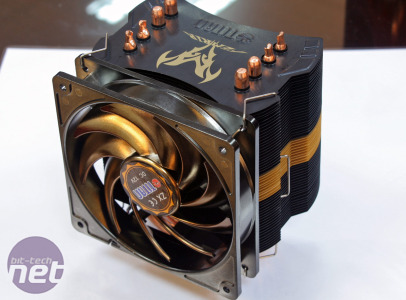
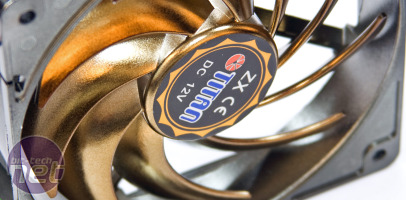
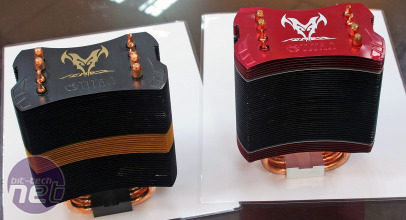
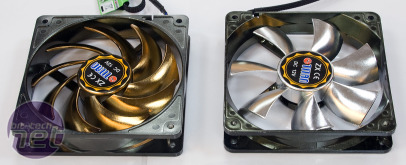
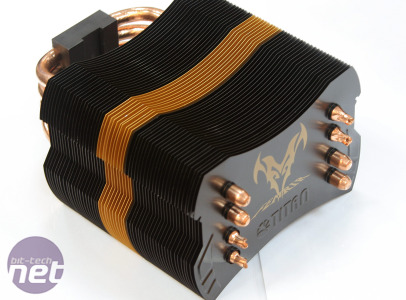
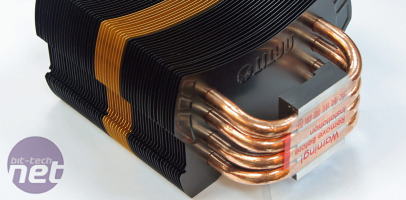





Want to comment? Please log in.